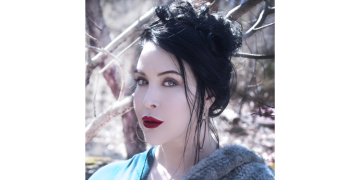SAHA, by Cho Nam-Joo. Translated by Jamie Chang.
In a world powered by hierarchies, what does it mean to not be “anyone or anything deserving of a category”? This is the question explored in “Saha,” the newest book by the Korean novelist Cho Nam-Joo.
“Saha” is set in a former fish-farm village that has been overtaken by an unnamed corporation. Renamed “Town,” this “odd city-state that was not quite company or country” enforces a strict pecking order. At the top, people called Ls live lavishly as full Citizens. Below them are the L2s, exploited workers on temporary visas. And at the bottom sit Sahas, outcasts without rights or category, named after the run-down apartments where many reside.
Readers may recognize Cho as the author of the sleek and powerful book “Kim Jiyoung, Born 1982.” That novel, which was published in 2016 in South Korea and four years later in the United States, chronicled the overwhelming sexism faced by a Korean everywoman, with footnotes documenting real-world gender inequality. The result was a forceful novel that sparked controversy and spurred a feminist movement in South Korea.
“Saha” may surprise readers expecting another “Kim Jiyoung.” Although the novels share Cho’s spare prose and unsparing eye, and Jamie Chang’s sharp translation, “Saha” differs in focus and form. Instead of fusing literary fiction and reportage, “Saha” combines a dystopian thriller with a series of intimate character sketches that form a portrait of a community. (Imagine “Winesburg, Ohio” set in “1984.”)
The novel’s loose plot centers on two troubled siblings, Do-kyung and Jin-kyung, who are taken in by the Sahas. The book opens with Do-kyung fleeing from a dead body and closes with Jin-kyung seeking answers for her brother’s disappearance. But the bulk of the novel is composed of vignettes exploring the lives of various Saha Estates dwellers. Cho draws touching portraits of her discarded denizens. We see their hopelessness — “I want a proper life,” a young Saha says. “Not to be merely alive like a worm, or a moth, or a cactus, but to really live” — as well as the community they build on Town’s outskirts.
If Saha Estates and its residents are well rendered, Town itself is blurrier. The best dystopias extrapolate issues in our society and make us see them more clearly by literalizing their metaphorical conceits. Think of Big Brother and the surveillance state, the Handmaids and Christian misogyny, or the titular “Squid Game” and the violent contest of capitalism. Rather than focusing on one core issue, “Saha” opts for a more grab-bag approach. There’s a bit of runaway corporate power, an oppressive bureaucracy overseen by a “Council of Ministers,” a Covid-like plague, native displacement and more. No single idea is given much exploration. And because most of the novel takes place outside of Town, in Saha Estates, Town’s inner workings are left sketchy. Mostly, though, Town feels somewhat tame when our daily news is filled with reports of more tyrannical governments and more exploitative capitalism. In dark days, dystopian fiction must work overtime to keep up.
The novel’s allegory feels strongest in chapters about the policing of class borders. One woman, Yonhwa, is an L2 who spends her life searching for a ticket to L status. Finally she is offered “a life-changing job after all. Marriage. With a Citizen.” Yet her resulting marriage of convenience is loveless and abusive, and a pregnant Yonhwa flees to Saha Estates to hide. Instead of inheriting her husband’s wealth and class, Yonhwa finds herself a Saha. Even more heartbreaking is the story of Su, a Citizen doctor who smuggles supplies to treat Sahas. After getting caught and fired, Su finds her Citizenship threatened, and she is ostracized. Her tale is a tragedy — the death that opens the novel is hers. In these two stories, Cho illuminates the systemic enforcement of class in the same way that “Kim Jiyoung” revealed gender inequality. Town is a world where you cannot climb up but might slip down.
As a dystopian critique, Town itself might not fully come into focus. But “Saha” is ultimately an affecting portrait of people doing their best to survive in a world that would rather pretend they didn’t exist.
Lincoln Michel is the author of the story collection “Upright Beasts” and the novel “The Body Scout,” which was named a best science fiction and fantasy book of 2021 by the Book Review.
SAHA, by Cho Nam-Joo | Translated by Jamie Chang | 228 pp. | Liveright | $22






















